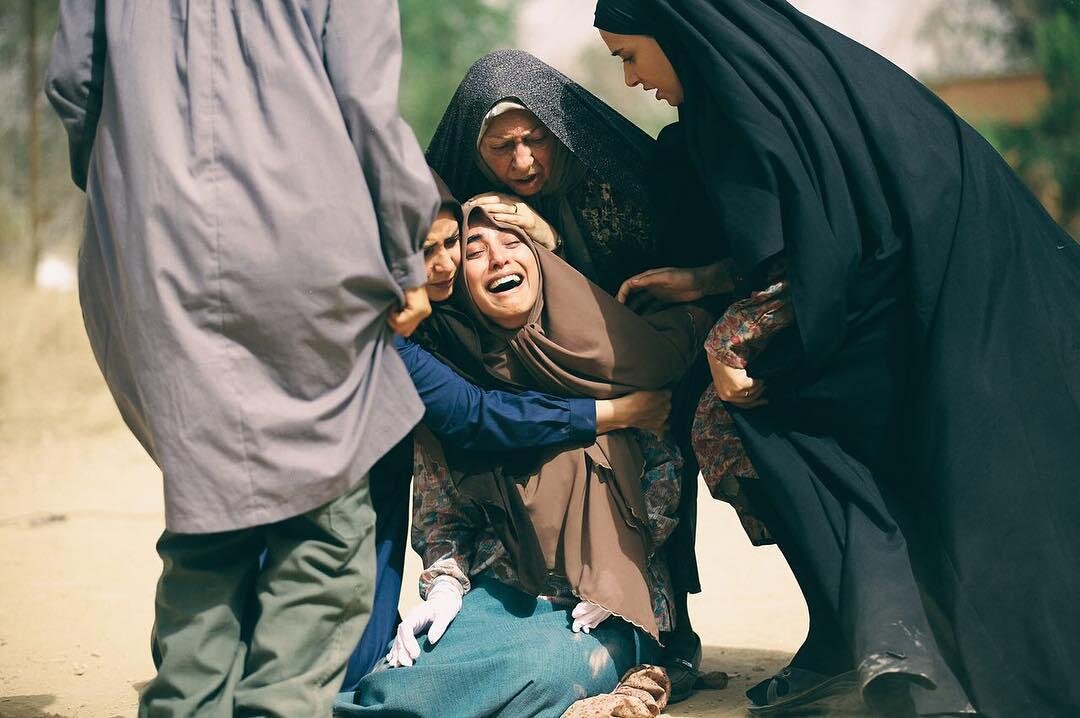Exploring the human side of war: Iranian female filmmakers and the Iran-Iraq conflict: Part 2

Monir Qeidi is another notable female filmmaker who has made significant contributions to the Iranian war cinema genre. Her debut feature film “Villa Dwellers” focuses on the lives of women left behind during the Iran-Iraq war, exploring their struggles, resilience, and determination in the absence of their husbands and sons.
Qeidi delves into the often-neglected experiences of women during times of conflict. She provides a unique perspective on the war, highlighting the experiences of women who are left alone to face the hardships of life without their husbands and sons. In doing so, she offers an insightful portrayal of how these women strive to maintain their resilience and determination in the midst of adversity.
Through "Villa Dwellers," Qeidi sheds light on the strength and courage of these women, who are often overshadowed by the soldiers fighting on the front lines.
“Villa Dwellers” tells the story of some of the families of the Iranian soldiers that stayed at residential villas near the frontline waiting to see their loved ones. Aziz and her grandchildren go the complex to get a chance to visit her son, Davud. After her arrival, new adventures begin.
It is one of the few works produced about Iran-Iraq war that focuses on the presence of women in the war and their role.
The film highlights how, while physical and bodily hardships of war fall on soldiers at the front, the psychological and emotional pressures and difficulties of war fall on women.
No matter how damaging bullets and explosions are for soldiers in war, the damage of unawareness and negligibility for their wives and mothers who wait for them outside the war zone is just as significant.
The film does not hold back in its portrayal of the emotional toll of war on them and their families. It highlights the fact that war leaves a lasting impact and scars on everyone involved, not just the soldiers on the front lines, but on those left behind as well.
One of the overlooked characters in the film is time. Time acts as an anti-hero in the story as these women are trapped in a specific time and place and have no power to change it.
The character of time serves as a constant reminder of the uncertainty and unpredictability of war. It shows how time can feel like an enemy as it continues to move forward regardless of what happens. The women understand that they are powerless to change what has happened to them and must find a way to adapt to their new reality.
In “Villa Dwellers”, every moment is unpredictable. Any moment, they might receive news of a husband's death or injury, and what is important to these women is finding the time to lead a normal and ideal life.
Despite the hardships, “Villa Dwellers” also highlights the resilience and strength of these women. It skillfully demonstrates how these women are not merely passive victims of circumstance, but active agents in their own lives, making the best of what they've been dealt despite the challenging circumstances they find themselves in.
Through her masterful storytelling, Qeidi encourages viewers to empathize with the characters and see the world from their perspective, highlighting the universal experience of pain and suffering that comes with war.
Narges Abyar and Monir Qeidi are both dedicated to telling stories that accurately reflect the realities of the Iran-Iraq war, shining a light on voices and perspectives that are often marginalized or overlooked. Through their films, they offer a nuanced and multidimensional understanding of the conflict, exploring not only the events on the battlefield but also the emotional and social consequences of war on individuals and communities.
Their contributions to Iranian cinema have been instrumental in fostering a deeper understanding of the impact of war on people's lives. Through their storytelling, they provide a vital platform for diverse perspectives on the conflict, allowing us to learn about the human side of the story in a deeply personal and moving way.
Photo : A scene from “Villa Dwellers”
SAB/
Leave a Comment